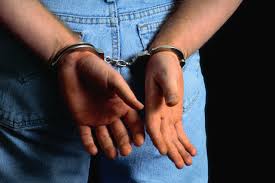|
Bail
The easiest way to get out of jail is to pay bail. This is an amount set by a judge at your first court appearance where you can also be informed of the criminal charges pending against you. Typically, the higher the bail, the more serious the charge. At any rate, if you've got the cash, you pay the Sheriff's Department and you are released until your next court appearance. If you complete your case and don't miss any appearances you are refunded the amount of your bail. If you miss court, the court keeps your bail money and issues a warrant for your arrest. This is the origin of the phrase, "let's bail".
Bail ScheduleSome counties have a bail schedule where an amount is listed as standard bail for each crime charged. You can pay the amount listed on the bail schedule and get out. Otherwise you have to wait for the court to hold its first appearance docket before your bail can be set. So, best thing to do, once you get to jail, is ask the deputy for a bail schedule.
Bail BondsIf you don't have the cash to pay the bail you can get a bail bond. In that case you pay a percentage of the bail, typically ten percent of the bail for a felony and twenty percent for a misdemeanor. These are nonrefundable premiums that keep the bonding company in business. So if your bail is set at $25,000 then you will need to pay a bondsmen $2,500 to bail you out of jail. You may also have to put up collateral.
The bonding company puts up a bond to ensure your appearance at court. If you don't show, the judge will issue a bench warrant and revoke the bond. The bonding company will ask the judge to be removed from the bond and if they aren't allowed, they can lose the bond. If so, bounty hunters go looking for you. They will also seize any collateral you put up for the bond, such as your car.
The 8th Ammendment to the US Constitution prevents bail from being used to raise money for the government or to punish the defendants for their alleged crimes. It should be no more than is reasonably necessary to prevent the defendant from fleeing the jurisdiction pending the case. For the most serious crimes it is typical to see bail set at an impossibly high level such that the defendant will not be able to pay, assuming they are a normal person and not a celebrity type. This ensures the defendant stays in jail until the trial is over. Bail or Bond ReductionIt is possible to get the bail lowered by requesting a reduction for good cause such as school, job, children, elderly care, mecial necessity, etc. So, before you ask your attorney to get the bail lowered, be prepared to tell us just how much you have gathered up for the bond. If you don't have anything for the bond, start calling friends and family to campaign on your behalf.
Collateral Instead of CashIf you still can't get the cash together, it is possible the judge may accept collateral that is worth more than the bail amount such as real estate. If you put up your house as collateral the county gets a lien on it. All co-owners have to sign consent documents. Get Out of Jail FreeIf you don't have cash or collateral it is still possible to be released on your own recognizance or ROR'd if you are not considered a flight risk and your crime is a lower level one and the county jail needs to free up some space to put more people in jail. This is your one "got out of jail free" card. Don't blow it. If you miss a court date tell your attorney immediately. Its possible to get you another court date if its done very soon after the missed appearance without taking you into custody. (Throwing you in jail.) Tough Love
Now here is some free advice for the mothers who are trying to help their sons. If your boy has jumped bail in another state and this is not his first drug case, don't put your house up as collateral for his bond. Its time for tough love. I'd rather say these harsh words now then see you homeless in your golden years.
|

